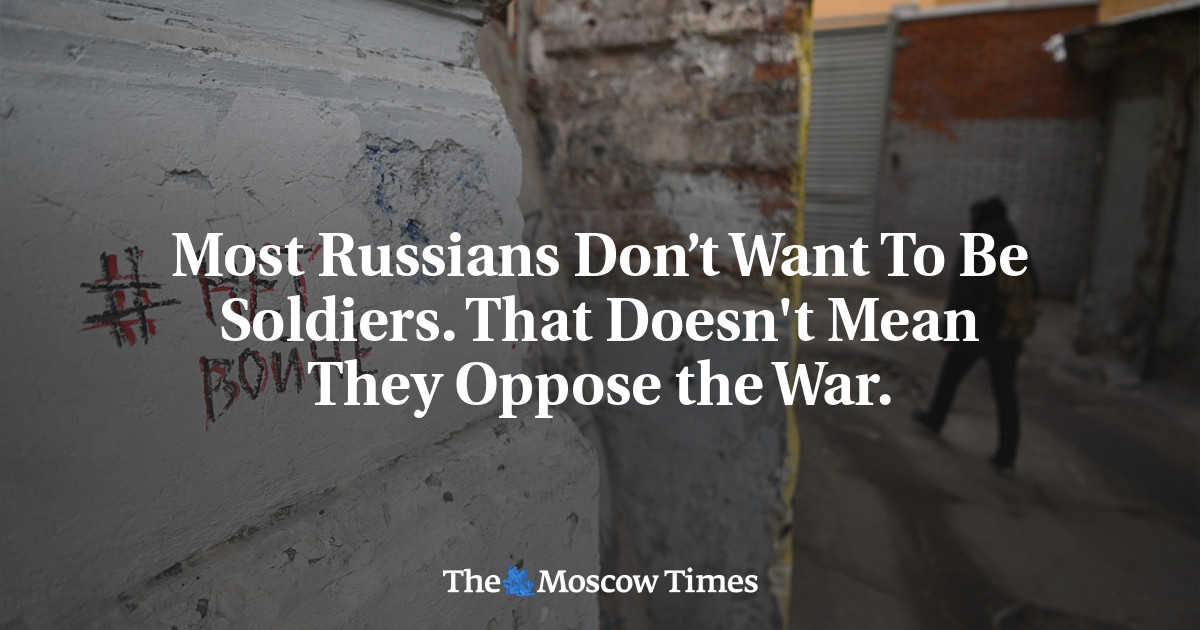
Most Russians Don’t Want To Be Soldiers. That Doesn’t Mean They Oppose the War.
How did your country report this? Share your view in the comments.
Diverging Reports Breakdown
Most Russians Don’t Want To Be Soldiers. That Doesn’t Mean They Oppose the War.
State-owned pollster VTsIOM published the results of a poll asking the public who it considers the real Russian “heroes of our time” The poll began innocuously enough. Respondents were first asked whether they agreed that real heroes of Russia include those who work “daily for the good of society,” not only serving on the battlefield. Among those under 25, 99% supported the supposition that one can heroically “defend the country” without weapons; other age groups were not far behind. The poll seems especially worrying for the Kremlin, considering that some respondents likely feigned belligerence just to curry favor with the authorities. The most eager to take up arms were those aged 50-60. But with only 33% saying yes, that hardly indicates a robust fighting spirit. The only option less popular than going off to fight was providing financial support. But even among men, volunteering and the vague “professional assistance” ranked highest.
opinion There Remains a Way to Make Russia Pay for Its Crimes Read more
To be fair, the poll numbers may be slightly skewed as they represent a holistic view of the Russian public. Men across all age groups are more likely to express a willingness for combat than women. Since men comprise the vast majority of Russian forces, their responses carry particular weight. Yet even among men, volunteering and the vague “professional assistance” ranked highest. One must remember that war is not an abstraction for Russians today; every Russian has, in one way or another, already considered the possibility of being sent to the front lines. These answers, therefore, merit serious attention, as they were not given without due thought and consideration. The poll seems especially worrying for the Kremlin, considering that some respondents likely feigned belligerence just to curry favor with the authorities. Some analysts — including myself — recently thought Putin would be unable to find enough conscripts to cover losses this year and that by late 2025, forcing him to choose between a forced draft and a ceasefire. Unfortunately, the data paints a different picture. The verified list of dead Russian soldiers maintained by Mediazona and the BBC already exceeds 115,000. About 5,000 names are added each month. The actual number of deaths is widely estimated at roughly double that. Washington’s Center for Strategic and International Studies (CSIS), for example, puts Russian fatalities at 250,000. Estimating all irreversible losses — killed plus wounded who never return to duty — is harder. Ukrainian Commander-in-Chief Oleksandr Syrskyi claimed Russia suffered 32,000 irreversible losses in June alone, though the country’s incentive to overreport Russian losses likely means that the real number is slightly lower. Meanwhile, official figures suggested Russia added 190,000 volunteer and contract soldiers in the first five months of 2025. If these figures (which suspiciously match last year’s reports and this year’s plans) are correct, monthly inflows exceed losses by roughly 10,000. Official numbers may be inflated, but front-line Russian forces are at least not shrinking—and most likely growing. The question of how long that growth can last remains. Irreversible Russian losses over three and a half years of war are estimated to range between 500,000 and 1 million. Putin says about 700,000 Russians are currently fighting. His goal is to increase the number of active servicement to 1.5 million.
